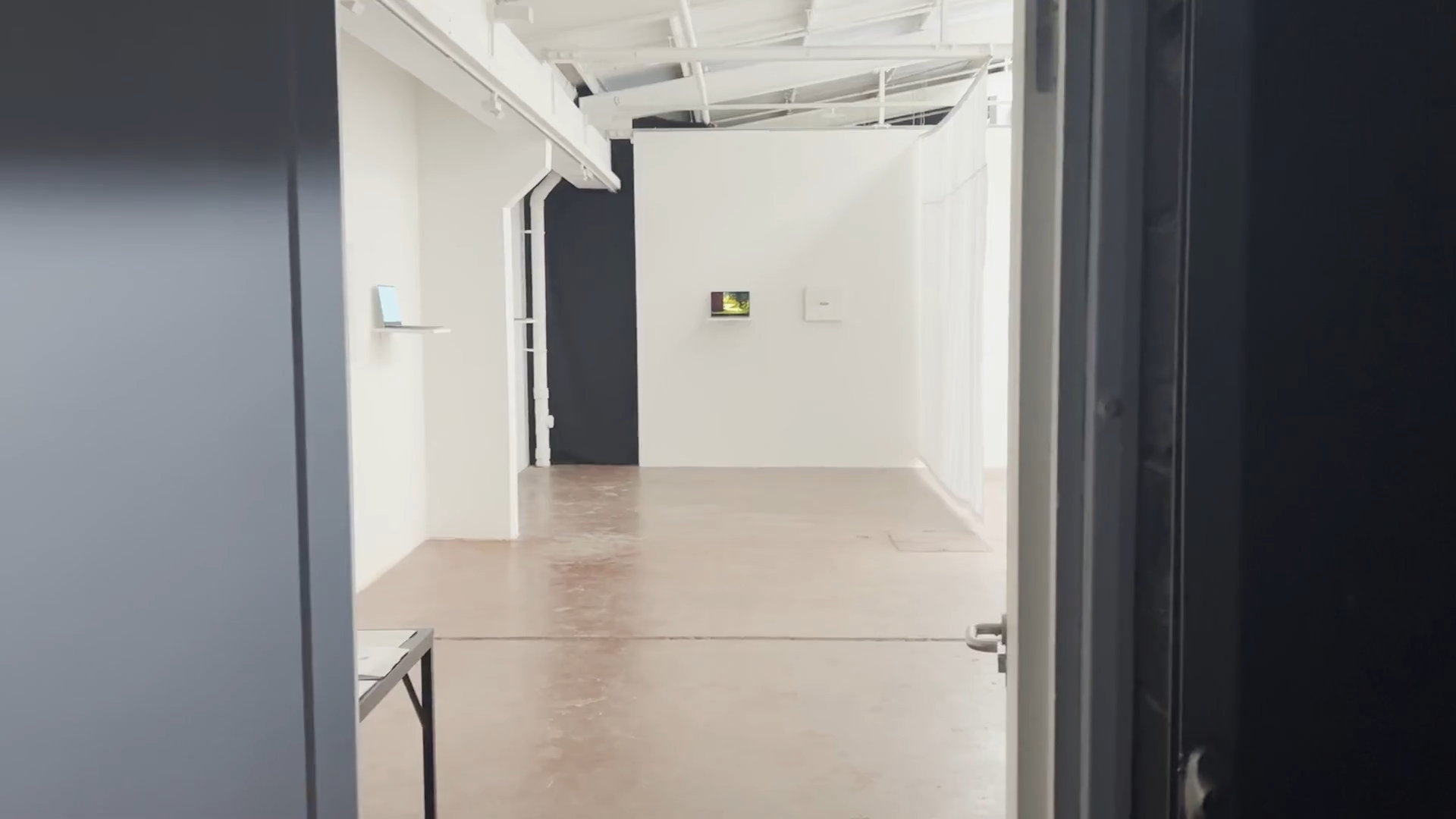





Contronym: Edith Dormandy and Julian Eleison
Greatorex Street, London, E1 5NF
PV: Nov 6, 6 – 8 PM; Open Nov 7-10, 10 AM – 6 PM
Edith Dormandy and Julian Eleison present "Contronym," a two-person exhibition of digital and non-digital painting. The two bodies of work are ostensibly different: Dormandy uses a traditional oil painting technique in works that are often austere in their compositions and colour schemes; Eleison makes screen-based digital paintings, and in a wide range of styles that tend to be colourful and painterly. This is perhaps related to the artists’ contrasting backgrounds: Dormandy's technique grew out of a classical atelier training, whereas Eleison is self-taught and previously made experimental videogames. But the clear differences between these two artists are ultimately somewhat reductive, if not misleading; they distract from the works’ more intricate and unexpected interactions, which form the heart of this exhibition.
At first blush, Dormandy’s work positions itself within the Western tradition of illusionistic and academic painting, whereas Eleison’s work seems to recall the stylistic fragmentation of contemporary painting in the present day. But each artist’s relationship with art history is a bit more complex: Dormandy’s work is consciously anachronistic, which is itself a contemporary position; Eleison’s work is consciously art historical—referring to East Asian art history in particular. When brought together, each body of work gestures toward the art historical logic of the other.
Dormandy’s engagement with the physical materiality of paint verges on the devotional, such that each of her paintings embed and describe their own history of labour and care. Eleison, too, attends to the particular qualities of digital paint, but instead structures his process around experimentation and intuition. While Dormandy’s work plays with the physical laws of vision, Eleison’s work plays with the physical laws of painting, oftentimes obscuring, if not inverting the traditional markers of time, methodology, and labor.
Despite their material and methodological differences, the two bodies of work function in similar ways: Both depend on a coherent figurative logic, both are autobiographical, both are meaningfully illusionistic. Even structurally, the two bodies of work mirror each other: Dormandy reflects on the specificities of paint, texture, light, and mark-making; Eleison reflects on the specificities of digital paint, digital texture, digital light, and digital mark-making. These two approaches to contemporary painting challenge and complement each other; they attest to the specificity, complexity, and range of painting as it is practiced in the present day.
Edith Dormandy (b. 1993) is a London-based painter who recently completed her MA in Painting at the RCA with the assistance of The Vice Chancellor’s Achievement Scholarship. She received her degree in Art History from UCL in 2016, gaining a place on the Dean’s List for overall high marks. From 2016-2020 she studied at the London Atelier of Representational Art, partially supported by the Art Renewal Center First Place Scholarship. Since then, she has been working as an artist and teacher.
"My practice is a way for me to wrangle what it is to be a self, specifically myself. This manifests in varied approaches and leads me to make work which is often personal, political and guided by a material philosophy. My family, body, and role in political and biological networks are common themes. I am usually drawn to painting things which are somehow on the edge of that which I call myself, or which I want simultaneously to hold close and push away. Representational painting lends itself to this kind of subject: a painting yearns towards its original but never reaches it; it presents a promise of touch it never fulfils. The painting process often feels like an act of violent chemical preservation as well as tender attentiveness. It allows me to be more intensely here with my subject, but through painting it, I am putting it there: behind the picture plane. This dual function of painting simultaneously to re-embed me in the world and to hold it at bay is what keeps me coming back, and it is in the suspended place between that I hope my paintings reside.”
Julian Eleison (b. 1998) is an American digital painter based in London. Eleison received his BA at the NYU Gallatin School of Individualized Study in 2023, and received his MA in Painting at the Royal College of Art in 2024. While at the RCA, he was nominated for the New Blood Award and the Hine Prize by the faculty of the Painting programme
